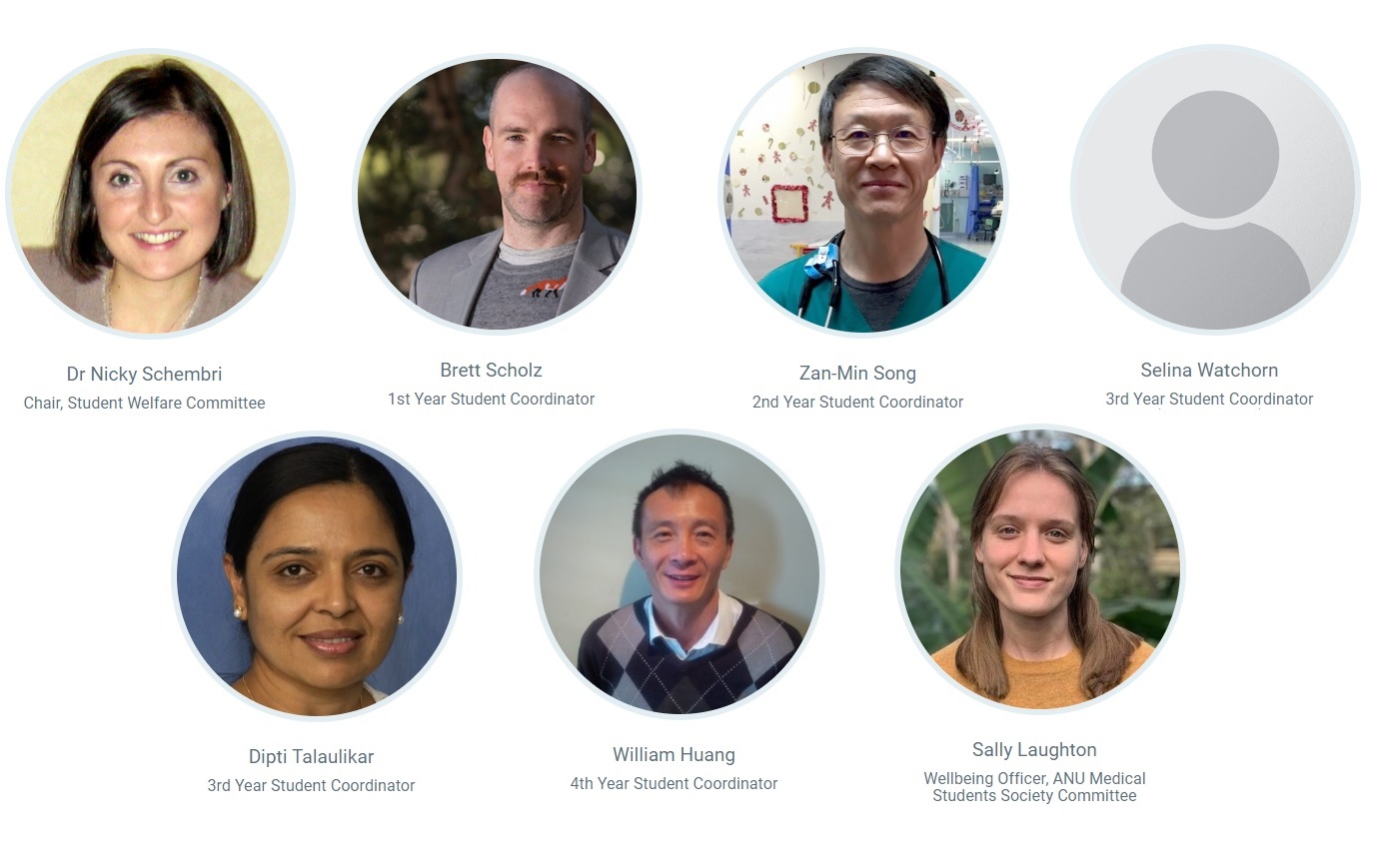Creating a Sense of Certainty in Uncertain Times

The start of a new academic year is an exciting time for students and staff.
At the Medical School, first year Doctor of Medicine and Surgery students are meeting new peers, exploring their options and embarking on courses that will hopefully help them decide a path in medicine. At the same time, third and fourth year students are getting ready to immerse themselves in clinical practice - doing hospital rounds, learning from doctors, nurses and allied health staff, and participating in several rotations in various areas of medicine.
Behind the scenes, staff are planning, preparing and liaising with partners and collaborators to ensure all students engage in and enjoy their learning experience.
So what happens when everything envisioned for the new academic year is turned up-side-down?
May Erlinger, a first year student explains, “My idealistic-self had imagined attending every lecture and lab and, in-between sessions, studying with friends in the library. I never considered I’d be watching lectures online. The reduced social interactions, and collegial spirit has been sorely missed. I’ve tried my best to stay connected with my cohort. Undeniably though, the experience of creating friendships has been hindered by the campus closures.”
Seeing the emotional impact that the lock-down was having on some students, Dr Nicola Schembri, Chair, Student Welfare Committee, sprang into action to plan additional wellbeing support during the pandemic. “My primary concern for the students was the possible effects isolation and a lack of routine might have on their wellbeing. I wanted to ensure processes were in place early and for students to know we’re here to help. The enthusiasm and commitment of my colleagues, which includes a student representative, enabled us to rapidly put together a tailored plan of action."
The Student Wellbeing team, led by Dr Schembri and including the year coordinators, Dr Brett Scholz (Year 1 Coordinator), Dr Zan-Min Song (Year 2 Coordinator), A/Prof Dipti Talaulikar (Year 3 Coordinator), Dr Selina Watchorn (Year 3 Coordinator), Dr William Huang (Year 4 Coordinator), and Ms Sally Laughton (Wellbeing Officer, ANU Medical Students Society Committee), spent countless hours interacting with students, each other and the acting Director, all in addition to their day-to-day work. During the past 4 months, as the landscape continually changed, the team rose to each and every challenge in order to support the mental, emotional and physical health of all students in a timely manner.
A weekly wellbeing survey was implemented, check-ins from year coordinators occurred, guidance on wellbeing, housing, financial and other matters was provided, and a revamp of the Student Support Centre website to include COVID-19 information and multiple online resources such as wellbeing webinars, took place. Plus, regular and transparent communication was provided to promote a feeling of certainty during very uncertain times.
The activities rolled out at the Medical School were shared, by Dr Schembri, with student support academic members of the Medical Deans of Australia and New Zealand (MDANZ), Student Support Network. The Network was established at the start of the pandemic with the aim of sharing experiences nationwide. The insights contributed allowed other medical schools to consider similar actions for their students.
One of the most impactful activities implemented was a Peer Support Network, an optional activity for students to virtually check-in with each other on a weekly basis. Ashleigh Thornton, a second year student explains, “I’m aware of a number of first years who hadn’t had the opportunity to make close friendships, given the shut-down occurred at the start of the academic year, so they got a lot of benefit from the peer support network and have hopefully made some good friendships as a result.”
Speros Thomas, a fourth year student said, “I have seen some students continue the desk exercises, provided through the online support tools, even now that they’re back to placements. And I know of many students that escalated their issues through the wellbeing survey. They were impressed by how intuitive the page was and how quickly and seriously their issues, no matter how small, were handled. There is no doubt that without the considerable efforts of Dr Schembri and the wellbeing team that many students would have struggled through this difficult period. A lot have coped well because of the supports in place.”
Now that the campus is slowly reopening, there is a light at the end of the tunnel. Ashleigh sums it up nicely by saying, “Being away from my peers has been difficult. We have done our best to keep in touch but it’s not the same as being at uni together. I’m definitely looking forward to going back and seeing everyone again. I believe as a cohort we’re pretty lucky and thankful for the genuine interest in student wellbeing shown at the Medical School. It would be easy to forget about students with everything going on, so the wellbeing team’s quick response and concern is greatly appreciated.”
